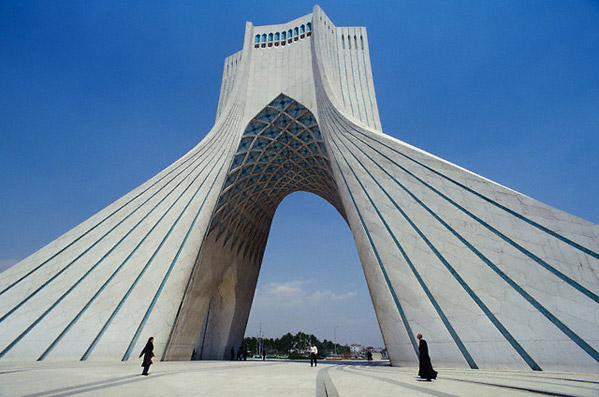Iran Special Report: The State of Civil Society...and What to Do About It (Razzaghi)
 Sohrab Razzahi of Arseh Sevom, a non-government organisation working for "Peace. Democracy. Human Rights", has published a report on The State of Civil Society in Iran.
Sohrab Razzahi of Arseh Sevom, a non-government organisation working for "Peace. Democracy. Human Rights", has published a report on The State of Civil Society in Iran.
The Executive Summary:
In the face of organizational limitations and roadblocks, parts of civil society in Iran have enjoyed significant growth over the past few decades. Recently, however, autocratic powers planned and executed an extensive attack on it. At present, civil society is in a hazardous situation. This is as a combined result of the following:
- The emergence of a new class of politicians
- The formation of a garrison-based government
- The involvement of the established Islamic Revolutionary Guards Corps (IRGC) in politics, economy, culture, and cyber space
- The prevalence of anti-democratic, civil society phobic discourse
Additionally, civil society organizations in Iran lack a clear understanding of the situation and are hampered in their efforts to manage the changes required to respond to emerging social needs and political and social transformations. The conservative and passive approach of Iranian civil society organizations on the one hand, and the silence and indifference of the international community on the other, bodes ill for civil society in Iran. Continuation of the current situation might mean the replacement of authentic, independent civil society with a “paper” one.
This study is based on interviews and discussions with a number of Iranian civil society activists. The focal point of the study is to identify the transitional orientation of civil society in such a dangerous situation. The study includes a situational analysis of the present state of civil society in Iran. It defines strategic challenges and gives an assessment of the strengths and weaknesses, threats, and opportunities. Furthermore, it offers proposals in order to transform weaknesses into strength and threats into opportunities in order to prevent the premature death of Iran’s civil society.
A. Consensus on the following major propositions
- The key element in the underdevelopment and lack of sustainable democracy in Iran is the weakness of civil society and non-participation in the development process.
- Civil society is a transitional force into democracy and control of political power.
- Transition from a weak civil society to a strong and sustainable one is the most important and effective way to battle the two historical problems of underdevelopment and lack of sustainable democracy.
- The structure and the nature of the government in Iran is anti-civil society. In recent years, the arrison-based state has employed strategies of suppression, limitation, and replacement of civil society.
- To play a decisive role in the development and establishment of democracy and civil rights movement in Iran, civil society must have a defined strategy and plan of action, otherwise it will become a follower of other strategies.
B. Key priorities in the present situation
A democratic government necessitates a strong democratic society without which it cannot sustain itself.
- Expansion of the discourses of democracy, human rights, and peace for the creation of a healthy, vital and democratic society.
- Development of knowledge and skills on networking, advocacy, leadership, peace-building, and civil society building.
- Empowerment of the political, social, cultural, and digital environments as key strategies in the transition to democracy and strengthening of civil society. Empowerment of citizens through increasing awareness, education on rights and responsibilities, expansion of knowledge and skills to work within associations, and practice with democracy at the micro-level.
- Development and expansion of communications and relations with international civil society.
- Reconstruction of social networks both in physical and cyber space and expansion of cooperation and solidarity among civil activists; coalition among civil society organizations; and coalition-building with international civil society.
- Development of a strategy to combat the imposing culture of silence, stagnation, and limitations on the circulation of information;media-pluralism and free access to information among activists and organizations.

 Sunday, December 26, 2010 at 8:35
Sunday, December 26, 2010 at 8:35
Reader Comments